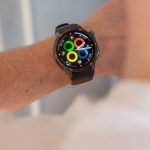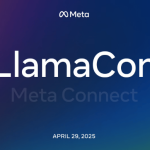Half one might be discovered right here

Add the DMZ ISE server to Lively Listing.



Why does the ISE node fail to hitch AD?

DMZ networks can’t talk with the interior community from a safety perspective except a firewall rule is in place. The picture beneath reveals that ISE (10.0.66.36) is attempting to speak with the area controller (10.0.206.21) on UDP port 389. A firewall will deny community site visitors except a rule is enforced.
This fulfills one of many fundamental wants of segmentation.

An ISE node retains failing when attempting to hitch an Lively Listing area.

Failure of CoA – Firewall guidelines should be in place.


Further ports should be opened to efficiently be part of an Lively Listing area.
- DMZ VLAN 666 to Inner VLAN 206 (Lively Listing)
- DMZ VLAN 666 (10.0.66.36) from ISE to inside WLC (10.0.0.18)
| Port | Description |
| UDP- 389 | Light-weight Listing Entry Protocol (LDAP) makes use of this TCP and UDP port for listing updates and fundamental LDAP queries. LDAP is the idea of Lively Listing and is used for person authentication and listing looking out. |
| TCP/UDP – 88 | This TCP/UDP port gives customers with entry to the Kerberos authentication protocol. This protocol permits customers to entry privileged community sources utilizing tickets from the server. |
| TCP/UDP – 135 | This port is used for Distant Process Name (RPC), a Home windows service that many companies, together with Lively Listing, rely upon. |
| TCP- 445 | This port is used for file sharing and authentication. Additionally it is used to share community system sources utilizing SMB, which is a key part of Microsoft Lively Listing. |
| TCP- 3268 | In Lively Listing, TCP port 3268 is used for the “international catalog” which permits looking out throughout your complete area forest, that means you possibly can entry this port on a site controller for objects from any area throughout the forest. You possibly can inquire. International Catalog Server; Mainly, it’s a particular LDAP port for searches wider than the usual LDAP port (389). |
| UDP- 1700 | Ship RADIUS Change of Authorization (CoA): UDP/1700 RADIUS Change of Authorization (CoA) Pay attention/Relay: UDP/1700, 3799 |
| Deliver your system (BYOD) / Community Service Protocol (NSP) Redirection provide SCEP |
Provisioning – URL Redirection: See Internet Portal Companies: Visitor Portal and consumer provisioning. For Android units with EST authentication: TCP/8084. Port 8084 Have to be added to redirect ACL for Android units. Provisioning – Lively-X and Java applet installs (together with launch of Wizard Set up): See Internet Portal Companies: Visitor Portal and Consumer provide Provisioning – Set up Wizard from Cisco ISE (Home windows and Mac OS): TCP/8443 Provisioning – Set up Wizard from Google Play (Android): TCP/443 Provisioning – The method of provisioning a requester: TCP/8905 SCEP Proxy to CA: TCP/80 or TCP/443 (primarily based on SCEP RA URL setting) |
| Profiling | Netflow: UDP/9996 Word This port is configurable. DHCP: UDP/67 Word This port is configurable. DHCP span probe: UDP/68 HTTP: TCP/80, 8080 DNS: UDP/53 (write-up) Word This depends upon the port route desk. SNMP question: UDP/161 Word This depends upon the port route desk. SNMP lure: UDP/162 Word This port is configurable. |
| OCSP and CRL service ports OCSP 2 |
For OCSP, the default ports that can be utilized are TCP 80/ TCP 443, TCP/2560. Cisco ISE Admin Portal is anticipated. HTTP-based URLs for OCSP companies, and thus, TCP 80 is the default. It’s also possible to use non-default ports. For CRL, the default protocols embrace HTTP, HTTPS, and LDAP, and the default ports are 80, 443, and 389 respectively. The unique port is out there on the CRL server. |
| SCEP | TCP/9090 |
| The session | RADIUS Authentication: UDP/1812 RADIUS Accounting: UDP/1813 RADIUS DTLS Authentication/Accounting: UDP/2083. Ship RADIUS Change of Authorization (CoA): UDP/1700 RADIUS Change of Authorization (CoA) Pay attention/Relay: UDP/1700, 3799 Word UDP port 3799 will not be configurable. |
| Internet Portal Companies: Visitor/Internet Authentication Visitor Sponsor Portal My Gadgets Portal Consumer Supply Provide of certificates Blacklisting Portal |
HTTPS (interface should be enabled for service in Cisco ISE): Blacklist Portal: TCP/8000-8999 (default port is TCP/8444.) Visitor Portal and Consumer Provisioning: TCP/8000-8999 (default port TCP/8443.) Certificates Provisioning Portal: TCP/8000-8999 (default port is TCP/8443.) My Gadgets Portal: TCP/8000-8999 (Default port is TCP/8443.) Sponsor Portal: TCP/8000-8999 (Default port is TCP/8443.) SMTP Visitor Notifications from Visitor and Sponsor Portals: TCP/25 |


Configure the ISE Visitor Portal on GigabitEthernet 1.
interface GigabitEthernet 1
ip deal with 10.0.77.36 255.255.255.192
ipv6 allow
ipv6 deal with autoconfig
!
ip route 0.0.0.0 0.0.0.0 gateway 10.0.77.23
The route above will ship site visitors to the captive portal out interface GigabitEthernet 1

Test the portal.

Configure the ISE Sponsor Portal on GigabitEthernet 0.

Try the sponsor portal.



Configure an ACL on the DMZ controller that will likely be despatched to the consumer and set off the captive portal.
- Deny = Deny the site visitors to be redirected.
- allow = Enable site visitors to be redirected.
Reference:
you want Refusal Site visitors to you Deny ISE PSNs nodes in addition to DNS and permit all the pieces else.. That is the redirect ACL. No A safety ACL however a Pint An ACL that specifies which site visitors goes to the CPU (allow) for additional therapy (reminiscent of redirection) and which site visitors stays on the info aircraft (deny) and avoids redirection. (however not essentially dropped).
It’s extra very best to limit to port 8443 which is the port usually utilized by the visitor portal (though in some particular instances, different ports could also be included).
You additionally have to deny DNS site visitors (presumably solely to your DNS server IPs) and DHCP and NTP in some instances.
ip access-list prolonged WEBAUTH_REDIRECT_CWA
20 deny tcp any host 10.0.0.36 eq 8443
21 deny tcp any host 10.0.77.36 eq 8443
40 deny tcp host 10.0.0.36 any eq 8443
41 deny tcp host 10.0.77.36 any eq 8443
49 deny ip any host 72.163.1.80
50 deny ip any 72.163.0.0 0.0.255.255
60 deny tcp any host 10.0.0.36 eq 8905
61 deny tcp any host 10.0.77.36 eq 8905
70 deny tcp any host 10.0.0.36 eq 8084
71 deny tcp any host 10.0.77.36 eq 8084
100 allow tcp any any eq www
110 deny udp any host 10.0.206.21 eq area- Make sure that the corresponding person VLANs are outlined in DNS.
- Make sure that the ISE VLANs, captive portal, and hostname are outlined in DNS.
Create easy coverage units


Run a take a look at to confirm that the captive portal is working.

Word to self: The GigabitEthernet 1 interface resolves the visitor portal to the deal with 10.0.77.36.
visedmz/admin(config)#ip host 10.0.77.36 dmzwlan dmzwlan.netprojekralac.com
Host alias was modified. It's essential to restart ISE for change to take impact.
Do you wish to restart ISE now? (sure/no) sure
This command is used so as to add a static hostname-to-IP deal with mapping ETH1's community interface. Here is what it does step-by-step:
1. ip host: Signifies the command to create a static mapping.
2. 10.0.77.36: The IP deal with of the host.
3. dmzwlan : The brief hostname for the system.
4. dmzwlan.netprojekralac.com: The Absolutely Certified Area Title (FQDN) for the system.By coming into this command on a community system, you might be manually assigning an IP deal with. 10.0.77.36 And its ETH 1 FQDN dmzwlan.netprojekralac.com. Ensure the corresponding DNS entry is configured.




ISE Reside Logs


DHCP server

Anchor WLC








